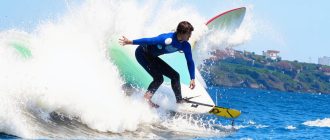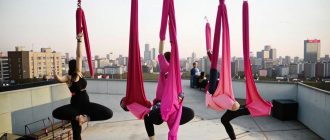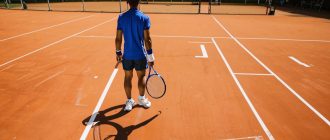Triathlon is an incredibly challenging sport that requires concentration on three disciplines at once. How do you find the strength and motivation and where do you start for those who only want to try themselves in these competitions? We talked to Stepan Vakhmin, coach and multiple Ironman, trainer of the World Class network.
– What is the innovation of your approach to training?
– In fact, there is no innovation. Just the vision itself can be different. I’m a fitness person, and I’ve never worked in high-performance sports. I’ve always been drawn to fitness and healthy living. Before, the topic wasn’t very well known, there was no concept of fitness at all. And now the concept I promote is related to this very thing. The athletes we work with are exercising solely to maintain their health. Hardly any of them are willing to sacrifice it for results. In fact, any result achieved by our amateurs, in the brightest prospects – a world champion. But next year there will be another world championship, and in five years there will be five, and hardly anyone will remember it.
– What about in big sports?
– I work with a coach now, and we often discuss such issues. It turns out that professionals today have the same approach to sport. Any injury will not give an athlete the opportunity to develop. It will come out anyway when training with high intensity. A healthy approach and regularity are important, which is why great sport and fitness are inseparable.

– Do you think it is possible to “pump up” quickly in triathlon?
– This is a very long sport. An athlete develops for years, decades. I know guys who achieve top results in 2-3 years, but they are stars who then fade away. Everyone has his own goal, and everyone goes to it in his own way. I’ve been in the top ten in Russia for five years and I don’t want to stop. For many people, the World Championship is the end point, but I don’t think so. There is no such thing in life. It is better to hold your position for a long time than to reach the heights once and fall.
– Do you agree that everyone has their own Ironman?
– That’s what triathlon teaches. I, for example, always tell my students about conditional balance. You can’t start training hard while you have family or work problems. Triathlon is not a place where you can run away from your problems. It’s a sport where you have to come in happy. A lot of people just run away from themselves – by training a lot of hours, you just forget that you have things to do and problems to deal with. That’s not really the right thing to do.
– And how do you maintain a balance between training, family and work?
– I made a decision that family comes first, work comes second and sport comes third. And if I have any problems in the first two areas, I can postpone training. Let it be a year, two years, but I will deal with the first and start the second.

– Where do you find motivation?
– The fact that I work as a trainer helps me. I do a lot of exercises with my students, and they like it a lot. They see me running kilometers at high speeds and realize that it can be done. There is a kind of energy exchange. This is very important, because we achieve results not in competitions, but in hard training. That’s the key.
– If a client comes to you and says they want to train for a triathlon, what distance do you recommend they start with?
– This is a very common question. The first thing we do is a health check, it all depends on that. But most of the time I recommend the sprint. It’s the easiest distance, and if a person can swim, bike, run or walk a little bit (and some of my clients just pass this stage), then sprinting is the real deal. I’ll be honest, I’ve done 10 Ironman or more, but never ran all the way through any of them. Always went to the step.

– How do you feel about the fact that in the States people have a simpler approach to the Ironman philosophy, while here they puff for results?
– Of course, we have everything too inflated, but if you look at the distance, more than half of them walk. For me, there are only winners and runners-up. It doesn’t matter if you came eighth or twenty-eighth. It’s all inside. What matters is that your goal was the half (or any distance) and you did it.
The one piece of advice I give to all my clients is that even if you walked the entire distance, gather your strength in your fist and run the last two kilometers. You have to cross the finish line in agony. I cite the example of Jan Frodeno, who won the first time by retracing his steps at every power point. How are you worse than a world champion?
– What do you orient your clients to on the course? What are the things to watch out for?
– The first factor is enjoyment, because if a person doesn’t enjoy it, they will stop doing it. Concentration on inner sensations is important. Even in training we keep an eye on that. If you don’t feel good, sit, rest, feel your body and continue.
– What do you think is more dangerous: when people who have done 226 get bogged down in the sport, or when after 226 they start to open up more and more extreme distances?
– I have a twofold opinion on this. Someone who did an Ironman and stopped doing triathlons probably did it to show off at the office. But on the other hand, those who have done 226 often move on to shorter distances because they require less training time. Those who do a lot and often are more likely to be attracted to traveling, in my opinion. It’s hard to call it a competition. The issue here is two things – preparation and money. But what good it does is unclear.

– Can anyone prepare for a sprint?
– If he has no diseases and the supervising doctor allows him to practice, yes. You don’t have to ride a bike to smoke. And you can walk. At one distance I had a man walking next to me at a fairly fast pace and did not stop, and I ran at his pace from point to point.
– What helps you to collect yourself before the start?
– Before the race I don’t like to be distracted by anything or anyone. I always tell myself that the main task is to show what you have trained, not others. And if I show my maximum, which I showed in training, for me it will be a hundred percent fulfillment of the task. I’ve already won the race.
– How not to panic when someone overtakes you?
– Everyone has their own race! Just enjoy your own and don’t think about others.






